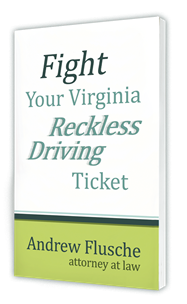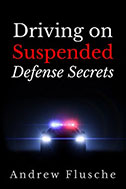Reckless Driving and the FMCSA Safety Score

For a commercial driver, flashing lights in the rearview mirror can be a direct threat to your career. A reckless driving ticket in Virginia isn’t just about a fine; it can harm your company’s federal safety rating, raise insurance rates, and jeopardize your Commercial Driver’s License (CDL). With your livelihood and your company’s reputation at stake, the pressure can feel immense. At Flusche & Fitzgerald, we help commercial drivers and trucking companies navigate Virginia’s traffic laws to safeguard their futures.
Contact us today at 540-318-5824 to discuss your case and learn how we can help you.
What Is the FMCSA’s Safety Measurement System?
The Federal Motor Carrier Safety Administration (FMCSA) employs the Compliance, Safety, Accountability (CSA) program to improve the safety of commercial motor vehicles. A vital part of this program is the Safety Measurement System (SMS), which analyzes data from roadside inspections and crash reports to identify high-risk carriers. The system sorts performance data and assigns carriers a percentile rank, often referred to as a DOT safety score or FMCSA score. This score helps the FMCSA prioritize interventions for companies with higher safety risks.
How Does a Reckless Driving Conviction Affect Your FMCSA Safety Score?
A reckless driving conviction in Virginia can significantly harm a carrier’s safety scores. Under the SMS, reckless driving is a serious offense with a high point value due to its correlation to crash risk. When a driver is convicted, these points are added to the carrier’s SMS profile and remain on the record for 24 months. The violation is weighted more heavily during the first year, maximizing its negative impact on the overall score.
What Are the Consequences of Poor Safety Scores?
A poor FMCSA safety score creates significant operational and financial problems for a trucking company. These consequences illustrate how a single incident can compromise a carrier’s stability and profitability. Carriers with poor scores may face:
- Increased scrutiny. The FMCSA will likely issue warning letters and may subject the company to more frequent and intensive roadside inspections and compliance reviews.
- Higher insurance premiums. Insurance providers use CSA scores for drivers to assess risk. A poor score almost always leads to a substantial increase in insurance costs.
- Loss of business. Many shippers and brokers check a carrier’s FMCSA score before awarding contracts. A high score can make securing new business or retaining existing customers challenging.
- Driver retention issues. Drivers are the lifeblood of a trucking company. A poor safety record can make recruiting and keeping qualified, safe drivers difficult.
These consequences illustrate how a single reckless driving ticket can threaten the stability and profitability of an entire operation.
How to Improve CSA Scores or How to Lower CSA Scores?
Wondering how to remove CSA points? If a recorded violation is inaccurate, a carrier can use the FMCSA’s DataQs system to request a correction. However, this process only addresses administrative errors. A carrier cannot remove correctly assigned CSA points from its record. The most effective strategy to improve or lower your scores is to prevent a conviction by fighting the reckless driving charge in court with the help of an experienced attorney.
How Can a Virginia Traffic Attorney Help?
Fighting a reckless driving charge is the best way to protect your CDL and your carrier’s safety record. An experienced traffic defense attorney can review the details of your case, from the reason for the stop to the evidence provided by the officer. We can create a defense plan aimed at achieving a favorable outcome, such as having the charge dismissed or reduced to a lesser offense, like improper driving, which carries fewer consequences. Avoiding a reckless driving conviction helps prevent the high points that could damage your FMCSA safety score.
Why Choose Flusche & Fitzgerald?
When your career and business are on the line, you need legal counsel from recognized authorities in Virginia traffic law. Andrew Flusche wrote the book on Virginia reckless driving defense, creating the most reviewed resource of its kind on Amazon. Our attorneys have defended thousands of people just like you, earning a 10.0 Superb rating on Avvo and a 5.0-star rating on Google. We handle all cases on a flat-rate basis, so you know exactly what our services will cost after our initial consultation.
Take Action to Protect Your Future
A reckless driving charge is a serious issue that has long-lasting effects on commercial drivers and their companies. Don’t wait for a conviction to harm your record and your business. Contact us today for a complimentary initial phone consultation to learn how we can help you achieve the best possible outcome in court.
FAQs
How Does a Reckless Driving Ticket Affect FMSCSA Safety Scores?
A conviction for reckless driving is a serious violation that adds high-severity points to a motor carrier’s Safety Measurement System (SMS) data. These points increase the carrier’s percentile ranking, negatively impacting their overall safety scores and potentially triggering FMCSA interventions.
What Are the Consequences of Reckless Driving for Commercial Drivers?
For a commercial driver, a reckless driving conviction can lead to fines, demerit points on their license, and even suspension of their personal driving privileges. It also leaves a negative mark on their driving record, making it more challenging to stay with your current employer or find new opportunities with other carriers.
Can Reckless Driving Lead to CDL Suspension?
Yes. The FMCSA and Virginia DMV consider reckless driving a serious traffic violation. A second conviction for a serious traffic violation while driving a commercial motor vehicle within three years will result in a CDL disqualification for at least 60 days.
Resources
CSA Fact Sheet, U.S. Dept. of Transportation, link.
The Motor Carrier Safety Planner, 3.5 Correcting a Motor Carrier’s Safety Data (DataQs), U.S. Department of Transportation, link.
The Motor Carrier Safety Planner, 3.6 Safety Ratings, U.S. Dept. of Transportation, link.
Disqualification of Drivers, Code of Federal Regulations 49 § 383.51, link.




